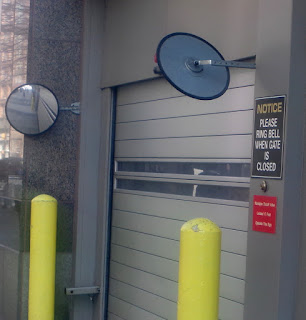(Originally published on 2/18/19)
Today is a federal holiday here in the United States, which
means there is no mail delivery, no garbage pickup, and most of the banks are closed.
The schools are off, too, which means less traffic, less noise, and more
parking spaces—in my neighborhood at least. Unfortunately, it’s Presidents’ Day that we are celebrating
and not George Washington’s Birthday. Since, though, we are recognizing
presidents from one to forty-five on this third Monday in February, it’s worth
contemplating how we got from there to here. Along the way, I’d say, we’ve gone
from the cream of the crop to the bottom of the barrel.
Historians often debate whether leaders are born or made.
For instance, Abraham Lincoln rose to the occasion during the Civil War and
Franklin Roosevelt, during the Great Depression—crisis moments in American history. In ordinary,
uneventful times, Lincoln and Roosevelt might not have had the opportunities to
distinguish themselves in any consequential ways. And our pennies, dimes, and five-dollar bills would look a little different because of it.
Consider Lincoln at the onset of the Civil War and his tapping
General George McClellan to head the Army of the Potomac. While McClellan was quite
pompous and full of himself, he was—on paper at least—the right man for the job. At the
general’s home, the man famously snubbed the President of the United States—after keeping him waiting
for over an hour—by calling it a night and going to bed. Discussing war strategy could wait. In
letters, McClellan disparagingly referred to Lincoln as the “original gorilla”
and “nothing more than a well-meaning baboon.” The president, however, rejected
underlings’ advice to reprimand his insubordinate military appointee and said,
“Better at this time not to be making points of etiquette and personal
dignity.” Well, that was then and this is now—Presidents’ Day 2019.

Quite deserving of the honor, Number One has got a lot of things named after him, including the George Washington Bridge, which spans the Hudson River and connects Northern New York City with Northeastern New Jersey.
I began Presidents' Day weekend bedecked in winter wear, including a wool hat and gloves. On Sunday, however, I jettisoned the former. Upon spotting me on what was still a pretty cold morning, a female transit maintenance worker exclaimed, "Where's your hat?" My mistake. I could have used it.
When I momentarily stumbled on the sidewalk in the vicinity of Times Square, an African-American gentleman peddling loosies remarked, "Careful, my brother." It was yet another "Mrs. Stern Moment" for me. "Why can't we all just get along?" I thought.
Some boots are made for walkin'...but not this pair.
I encountered numerous panhandlers in my Presidents' Day weekend travels. One fellow, who was visibly disabled and very unsteady on his feet, made his case for food, bottles of water, or anything that might help—like cash. The problem with his pitch was that he didn't hit pause and wait for possible largesse. A couple of people had to scurry after him—through a crowded subway car—to give him what he requested. Another guy, whom I've seen before, called attention to the trousers he was wearing courtesy of money raised in his regular subway appeals. He left the various tags on the pants as visible proof that he was the genuine article. The man also made it known that he only rides on the Number 1 train. Why? Because he wants riders to get to know him and witness his progress. Others take note: This genial, honest, conversational demeanor works wonders in the Land Down Under.
One-stop shopping...who could ask for anything more...
Specializing in teensy-weensy portions? No, wait, that's the Gandhi Cafe.
I love a good play on words for a business name. But some just don't work in my opinion. On the other hand, if the owner was named Raj or Haj...
My father plied his trade at this not inconsiderable post office, the James A. Farley Building, for twenty-five years. On the building's facade is the celebrated USPS motto: "Neither rain nor snow nor heat nor gloom of night stays these couriers from the swift completion of their appointed rounds." It doesn't say anything about them talking on their cell phones while delivering the mail.
When my father worked the four-to-midnight shift, these peculiarly shaped high-rises weren't in the post office's backdrop.
These unsightly high-rises, in my humble opinion, comprise the spanking new "Hudson Yards" complex, deemed a "neighborhood for the next generation." If that's the case, the next generation is going to have to be extremely wealthy. One-bedroom apartments start at $5,300/month. And condos can be had for a minimum of $3.9 million. This is the new New York.
The old New York not only looked better...
It was better! Take my word for it.
An elderly aunt of mine—my father's sister—toiled in Midtown Manhattan's "Garment District" for decades. The sights and signs on Seventh Avenue—Fashion Avenue—underscore what once was and that is practically no more. As a boy, I can remember seeing men pushing around full racks of clothes on the busy city streets. That's a blast from the past not likely to be spied today.
After all, we now live in an age when you can call the hot dog wagon in advance.
Finally, more pointless and slippery ice melter to navigate...with no snow or ice to justify it...
It's little wonder that men and women, including me, experienced the 50th Street Blues on Presidents' Day weekend 2019.
(Photos from the personal collection of Nicholas Nigro)
 (Originally published on 7/9/2011)
(Originally published on 7/9/2011)



















































